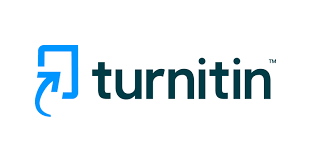Halal Critical Point of Beneng Taro Products Identification Produced by Micro Enterprise in Serang City, Banten
Abstract
Keywords
Full Text:
PDFReferences
Ali, M. 2016. The Concept of Halal Food in Sharia Perspective and Product Responsibility of Halal Industr. Ahkam: Jurnal Ilmu Syariah, 16(2), 291– 306.
Atma, Y., Taufik, M., dan Seftiono, H. 2018. Identifikasi Resiko Titik Kritis Kehalalan Produk
Apriyantono A. 2007. Titik Kritis Kehalalan Produk Bakery dan Kue. Bandung: Kiblat Pangan: Studi Produk Bioteknologi. Jurnal Teknologi. Vol. 10(1): 59-66.
[BSN] Badan Standarisasi Nasional. 2016. SNI 99001 Sistem Manajemen Halal.
Horchner, P. M., Brett, D., Gormley, B., Jenson, I., & Pointon, A. M. 2006. HACCP based approach to derivation of an on-farm food safety program for the Australian red meat industry. Food Control, 17, 497-510.
Kohilavani, R., Febrianto, N., Zzaman, W., Zakariya, N.S., Nadiah,W., Abdullah,W., Yang,T.A. 2013. Embedding Islamic Dietary Requirements into HACCP Approach. Food Control Journal. Volume 34: 607-612.
Keputusan Menteri Agama. 2021. Kemenag No 1360/2021. Bahan Yang Dikecualikan Dari kewajiban Bersertifikat Halal. Jakarta.
[LPPOM MUI] Lembaga Pengkajian Pangan Obat-Obatan Kosmetika Majelis Ulama Indonesia. 2013. Surat Keputusan LPPOM MUI tentang Daftar Bahan Tidak Kritis LPPOM MUI. Jakarta.
LPPOM MUI] Lembaga Pengkajian Pangan Obat-Obatan Kosmetika Majelis Ulama Indonesia. 2013. Pedoman Pemenuhan Kriteria Sistem Jaminan Halal di Industri Pengolahan. Majelis Ulama Indonesia. Jakarta.
Mohammed, A., Aboje, A. A., Auta, M., & Jibril, M. 2012. A Comparative Analysis and Characterization of Animal Bones as Adsorbent. Advances in Applied Science Research, 3(5), 3089–3096.
Riaz, M. N dan Chaudry MM. 2019. Handbook of Halal Food Production. Florida: CRC Press.
Sucipto, Damayanti,R.W., Perdani , C.G. Kamal, M.A, Astuti,R., Hasanah,N. 2022. Decision Tree of Materials: A Model of Halal Control Point (HCP) Identification in Small-Scale Bakery
Sugito, H., Firdausi, K. S., Putri, N. K. 2018. Evaluasi Cemaran Lemak Babi Pada Minyak Goreng. Vol 4(1): 1–4
Tieman M. 2011. The application of Halal in supply chain management: in-depth interviews. Journal of Islamic Marketing. vol. 2(2) : 186–195.
DOI: http://dx.doi.org/10.33512/fsj.v5i1.20914
Refbacks
- There are currently no refbacks.

This work is licensed under a Creative Commons Attribution-ShareAlike 4.0 International License.











